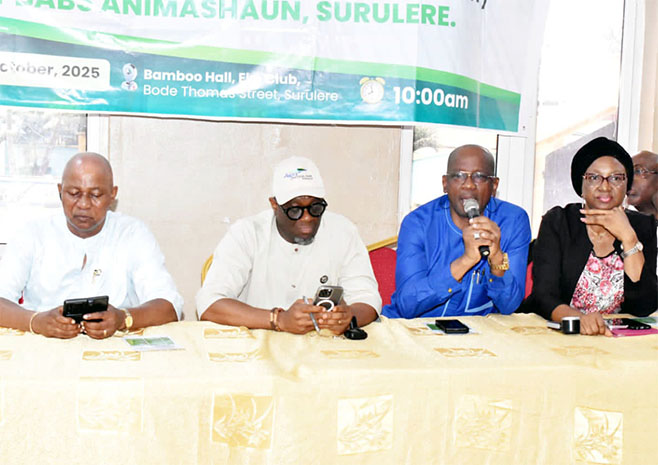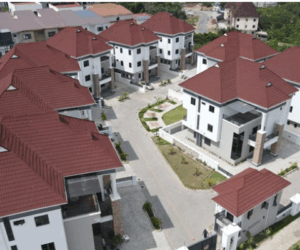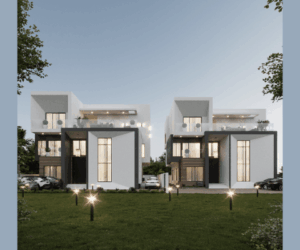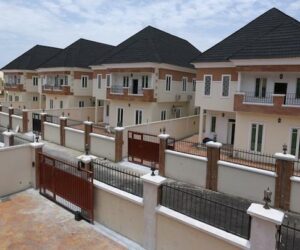1
The Lagos State Government has embarked on a renewed campaign to restore order, transparency, and inclusiveness in its urban planning and development process.
Through a series of clarifications, public engagements, and sensitisation initiatives, the state is seeking to rebuild public confidence in its regulatory system, tackle misinformation about demolition exercises, and strengthen compliance with planning laws across local government areas.
From FESTAC Town to Surulere and Ojo, the Ministry of Physical Planning and Urban Development has in recent weeks launched extensive outreach efforts aimed at correcting misconceptions about its activities, promoting civic participation, and encouraging residents to follow due process before embarking on construction projects.
FESTAC Demolitions: State Government Clears the Air
The controversy surrounding the recent demolition of buildings in FESTAC Town prompted a strong rebuttal from the Lagos State Government, which firmly denied any involvement in the exercise.
Commissioner for Physical Planning and Urban Development, Dr. Oluyinka Olumide, stated that the state government had “no role whatsoever” in the demolitions, stressing that Lagos operates a clear and transparent process for any demolition activity.
According to him, such processes include the issuance of statutory notices and adequate engagement with affected stakeholders before any structure is removed.
“We want to assure residents that the Lagos State Government remains committed to fairness, due process, and the protection of property rights,” Olumide said. “Any demolitions carried out without proper authorisation do not reflect the position or practice of this administration.”
He further cautioned that any agency—federal or otherwise—operating within Lagos must consult and obtain clearance from the Ministry before embarking on demolition exercises. The commissioner’s clarification followed weeks of public speculation linking the state to demolitions allegedly executed without proper notice, sparking tension among homeowners in FESTAC and adjoining communities.
Olumide emphasised that the Babajide Sanwo-Olu administration is determined to foster a planning culture rooted in accountability, fairness, and collaboration. “We must separate legitimate enforcement from indiscriminate actions by unauthorized entities,” he said, adding that the government remains open to dialogue with affected residents to prevent recurrence of such incidents.
Inclusive Planning: Stakeholders Engage Over Proposed Surulere Cemetery
In keeping with its emphasis on community participation, the Ministry recently held a stakeholders’ engagement meeting on the proposed establishment of a modern cemetery along Babs Animashaun Street, Surulere. The meeting, held at the Eko Club, brought together community leaders, residents, and project promoters to deliberate on the environmental and social implications of the plan.
Olumide noted that the engagement reflects the government’s inclusive approach to urban development, saying it is important to “carry everyone concerned along to ensure a balanced review of critical planning proposals.” He explained that the proposed cemetery is designed to address the growing need for a designated final resting place in Surulere, which currently lacks one.
“The initiative is part of our policy to ensure equitable distribution of essential infrastructure, such as healthcare, transport, and other civic facilities, across all local government areas,” he said.
Given the city’s limited land mass and rapid population growth, Olumide maintained that locating the cemetery within the informal space on Babs Animashaun Street aligns with international best practices. “Lagos is growing exponentially within a defined land space. We must think creatively and collectively to meet our planning needs,” he noted.
Permanent Secretary in the Office of Physical Planning, Engr. Oluwole Sotire, added that the purpose of the meeting was to promote dialogue, address grey areas, and achieve mutual understanding among stakeholders. He disclosed that the project proponents, Legacy Gardens, had revised the design to address earlier concerns about underground water contamination, safety, and security.
Project Manager Olumide Amure presented key features of the proposed facility, including modern management structures, street lighting, 24-hour CCTV surveillance, drainage systems, and a 20-metre setback from surrounding buildings. Stakeholders at the forum expressed mixed opinions— some supporting the plan as necessary for community order, while others raised environmental and cultural objections.
The ministry assured participants that no final approval would be granted until all issues raised had been resolved, adding that another meeting would be scheduled for further deliberation.
Urban Order and Compliance: Residents Urged To Obtain Planning Permits
Meanwhile, in another effort to strengthen urban order and reduce building collapse risks, the Lagos State Government has intensified its campaign on planning permit compliance. At a recent public awareness programme in Ojo, the Commissioner, Dr. Olumide, appealed to residents to ensure that all property developments obtain proper approval before commencement.
“The benefit of having a planning permit is, first, that it is the law. Laws are made to guide and regulate activities and people should not go against them,” he said. “It also ensures that buildings are properly constructed and safe. In the event of a collapse, both people and government bear the consequences.”
The event—jointly organised by the Ministry of Physical Planning and Urban Development and the Lagos State Physical Planning Permit Authority (LASPPPA)—was attended by community leaders, property developers, and market associations from Ojo, Badagry, Iba, Oto-Awori, Amuwo-Odofin, Oriade, and Olorunda districts.
Olumide highlighted that properties with valid permits enjoy higher valuation and can be used for bank loans or embassy verification. He warned that developers who proceed without approvals face severe penalties: “If a property is developed without approval, even if it meets planning standards, the penalty is four times higher than the normal charge. In some cases, if the building is found to be unsuitable, it could be demolished.”
The Commissioner also cautioned residents against offering bribes to ministry officials, assuring that staff had been retrained to uphold professionalism and transparency. He stated that once all required documents are submitted, a planning permit can be obtained within 10 working days.
Responding to pleas for an extension of the planning permit amnesty, Olumide said that the last window, granted by Governor Sanwo-Olu, ran from May 1 to December 31, 2024, and that a new request for extension has been submitted to the governor for consideration.
Permanent Secretary Sotire, who also spoke at the event, reiterated that public participation remains vital to achieving effective physical planning. “Physical planning is about the environment, and the environment is about people. Our regulations are for public safety and long-term sustainability,” he said.
Sotire further disclosed that a committee had been set up to review past demolitions and recommend reforms, especially in the Alaba International Market area, where stakeholders have expressed concerns over poor road infrastructure. He urged residents to support government projects by paying their taxes regularly. “There is so much the government wants to do, but funds are limited. Everyone must play their part,” he said.
Stakeholders Seek Collaboration, Fairness, and Infrastructure Renewal
President of the Alaba International Market Association, Dr. Camilus Amajuoyi, commended the government’s renewed engagement with stakeholders but appealed for the extension of the permit amnesty, noting that “less than 30 percent of buildings in Lagos have approvals.”
“Extending the amnesty will give property owners a fair chance to regularise their buildings and avoid demolition. We also urge the government to fix the Alaba road and upgrade the area to international standards,” he added.
Across all discussions—from FESTAC to Surulere and Ojo— the recurring theme remains the same: the need for order, fairness, and collaboration in managing Lagos’s urban growth. As Africa’s most populous city continues to expand within limited land space, ensuring that development aligns with approved plans has become a central priority.
By clarifying its stance on demolitions, engaging residents on sensitive projects like the Surulere cemetery, and intensifying advocacy for permit compliance, the Lagos State Government is sending a clear message: physical planning is not just about enforcing laws— it is about protecting lives, investments, and the city’s future.
As Olumide succinctly put it, “Lagos is growing fast, and planning is the only way to make that growth sustainable. We must all work together to build a city that is orderly, resilient, and safe for generations to come.”








